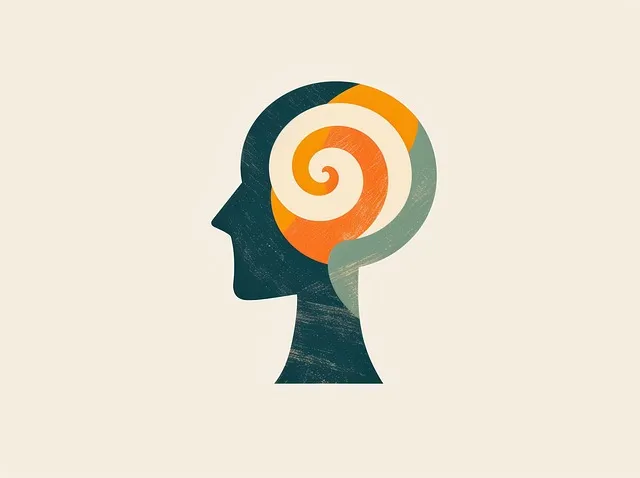Kaiser Permanente's commitment to cultural competency at its mental health locations in Northglenn prioritizes tailored care for diverse communities. Through comprehensive training, staff learn to integrate emotional well-being techniques and positive thinking into their practices while respecting cultural backgrounds. This has led to improved patient outcomes, reduced wait times, increased engagement, and better adherence to treatment plans. Using interactive workshops, case studies, and guest speakers, the program enhances knowledge and communication skills, fostering an inclusive environment that promotes long-term mental wellness and exceeds patient expectations. Continuous improvement through ongoing support, evaluation, and regular check-ins ensures the training remains effective and meets the evolving needs of both providers and patients in multicultural settings.
“In today’s diverse healthcare landscape, cultural competency is no longer an option but a necessity. This article explores the vital role of training in promoting understanding and empathy among healthcare providers, especially within established organizations like Kaiser Permanente. We present a case study focusing on their mental health training initiatives at Kaiser Permanente mental health locations in Northglenn, highlighting improved patient outcomes due to cultural sensitivity. Additionally, we offer effective training strategies and emphasize the importance of continuous post-training support for long-term success.”
- Understanding Cultural Competency in Healthcare: A Necessity in Modern Practice
- Kaiser Permanente's Approach to Mental Health Training: A Case Study
- The Impact of Cultural Sensitivity on Patient Outcomes at Northglenn Locations
- Effective Strategies for Healthcare Providers: Engaging and Diverse Training Methods
- Continuous Improvement: Post-Training Support and Evaluation for Long-Term Success
Understanding Cultural Competency in Healthcare: A Necessity in Modern Practice

In today’s diverse healthcare landscape, cultural competency is no longer an option but a necessity. This involves understanding and appreciating the cultural backgrounds, values, and beliefs of patients, especially in regions like Northglenn where Kaiser Permanente mental health locations serve communities with varied ethnic and social backgrounds. Effective cultural competency training equips healthcare providers with the skills to deliver tailored care that respects individual differences. It enables professionals to provide inclusive services, ensuring every patient receives respectful and sensitive treatment.
For mental health professionals, this translates into considering cultural nuances during risk assessments (Risk Assessment for Mental Health Professionals) and crisis interventions (Crisis Intervention Guidance). By integrating self-care practices (Self-Care Practices), healthcare providers can maintain their well-being while offering culturally competent care. This approach not only benefits patients but also fosters healthier relationships between providers and communities, ultimately enhancing mental health outcomes in diverse populations.
Kaiser Permanente's Approach to Mental Health Training: A Case Study

Kaiser Permanente, a healthcare provider with numerous mental health locations in Northglenn and across the nation, serves as a prime example of an organization prioritizing cultural competency training in its mental health services. Recognizing the importance of addressing emotional well-being promotion techniques and fostering positive thinking among diverse patient populations, Kaiser has implemented comprehensive programs aimed at enhancing mental wellness coaching.
Through these initiatives, the organization not only equips its staff with the skills to support patients’ mental health journeys but also creates a more inclusive environment. By integrating Emotional Well-being Promotion Techniques and Positive Thinking into their training curriculum, Kaiser Permanente’s mental health coaches are prepared to guide individuals toward improved mental wellness while respecting cultural nuances. This holistic approach to care development ensures that patients from various backgrounds receive tailored support, ultimately contributing to better outcomes.
The Impact of Cultural Sensitivity on Patient Outcomes at Northglenn Locations

At Kaiser Permanente mental health locations in Northglenn, cultural sensitivity training has shown significant impacts on patient outcomes. By fostering an environment where healthcare providers understand and appreciate the diverse backgrounds and beliefs of their patients, the quality of care improves substantially. This is particularly evident in reduced wait times, increased patient engagement during sessions, and better adherence to treatment plans. The training empowers mental health professionals to offer tailored support, addressing not just the symptoms but also the unique cultural contexts that influence mental wellness.
The benefits extend beyond individual patients; they contribute to broader efforts such as self-esteem improvement, mental illness stigma reduction, and the development of effective self-care routines for better mental health. By embracing cultural competency, Kaiser Permanente Northglenn locations are not just meeting but exceeding patient expectations, ensuring that care is inclusive, respectful, and ultimately more successful in promoting long-term well-being.
Effective Strategies for Healthcare Providers: Engaging and Diverse Training Methods

Effective strategies for healthcare providers include engaging and diverse training methods that cater to different learning styles. At Kaiser Permanente mental health locations in Northglenn, for instance, workshops combine interactive discussions, role-playing scenarios, and multimedia presentations to ensure comprehensive understanding. This approach not only enhances knowledge but also improves communication strategies, emotional intelligence, and stress reduction methods—all vital components of cultural competency.
Diverse training methods foster a sense of inclusion and encourage active participation. By incorporating activities such as group exercises, case studies, and guest speaker sessions, healthcare providers can better appreciate the complexities of diverse patient populations. This, in turn, promotes more nuanced care and improved patient outcomes, especially when addressing mental health concerns in a multicultural setting.
Continuous Improvement: Post-Training Support and Evaluation for Long-Term Success

Continuous improvement is a vital component of ensuring long-term success in healthcare provider cultural competency training. Immediately following initial training sessions at Kaiser Permanente mental health locations Northglenn, providers should receive ongoing support and evaluation to reinforce what they’ve learned and identify areas for growth. Regular check-ins with mentors or supervisors allow for open dialogue about challenges faced while implementing new cultural competencies in daily practice.
This post-training phase is also an opportunity to track the impact of the program on patient outcomes, particularly in self-esteem improvement, emotional regulation, and positive thinking. By assessing these aspects through qualitative and quantitative methods, healthcare organizations can gauge the effectiveness of their training programs and make necessary adjustments to cater to the evolving needs of both providers and patients.
Healthcare provider cultural competency training is no longer a luxury but an indispensable tool for improving patient outcomes, as evidenced by Kaiser Permanente’s successful mental health training initiatives at its Northglenn locations. By adopting diverse and engaging training methods, healthcare providers can gain the cultural sensitivity needed to navigate complex patient needs. Continuous improvement through post-training support and evaluation ensures long-term success, fostering a more inclusive and effective healthcare system that benefits all patients, regardless of their background or identity.






